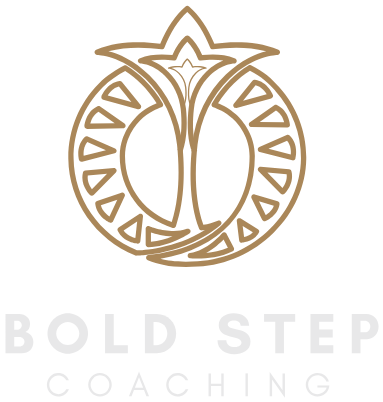Skills Workshop Programs
Our workshop programs prioritize an ongoing learning journey, enabling supervised, real-world implementation over time. While some skills can be effectively trained in one or two sessions, most benefit from hands-on experience over time with focus on practical application in your work setting. Our workshops are appropriate for developing expertise in specific areas. You will work with our coach to develop a custom tailored workshop for your needs, which will define the content and timelines. Finally, our pricing includes any materials and references that you may need for the course or for future reference.
Our unique approach ensures:
Teaching Frameworks and Transferring Knowledge: We equip you with proven methodologies and insights that you'll apply on the job.
Hands-on Practice with Real-World Examples: You'll apply concepts directly to scenarios tailored to your specific role, receiving continuous guidance as you implement new skills. This provides unique and directly relevant experience.
Supervised Work Deliverables: We provide direct oversight and feedback on your actual work deliverables, ensuring practical skill development and a distinct, sustainable learning advantage. We will review drafts, suggest edits, and gain learning for the future through discussion of how the deliverable was received. As this is a development workshop focused on building expertise, kindly note that we will not provide your deliverables for you nor take responsibility or be liable for your deliverable’s outcome.
You learn without the BS. None of the materials or lessons come from a proprietary, in-house systems or frameworks requiring learning non-traditional methods or frameworks, or even additional payment.
To get started, please review our areas of expertise then book a paid design session, where you will work collaboratively with our coach to define your customized program. The fees for this session will be applied as credit to your program should you choose to continue. If you wish to learn a bit more before diving in, please schedule a complimentary consultation.
Areas of Expertise
The skills developed through our workshop packages are not merely theoretical; they are the exact capabilities our coach honed and utilized to build an exceptionally successful career in both enterprise and startup environments. We are committed to providing instruction only in areas where our coach possesses demonstrated hands-on experience and expertise.
Skills marked [ENG] are particularly suitable for software engineering leaders, our area of specialization, and reflect deep practical knowledge and mastery.
Executive Leadership
Organizational Design [ENG]: Building, rebuilding, and scaling engineering organizations, including strategic placement of functions like QA.
Strategic Talent Management: Comprehensive strategies for hiring, firing, managing layoffs, fostering retention, and developing talent at all levels.
Fostering a High-Performance Culture: Cultivating morale, loyalty, and a thriving team environment.
Promoting Psychological Safety and Team Rapport: Creating an environment where team members feel secure and connected.
Mentorship: Developing exceptional talent to enhance productivity and efficiency.
Leading Through Change and Transformation [ENG]: Guiding teams through significant shifts, such as offshore/onshore augmentation or transformation.
Starting a New Job [ENG]: Practical guidance on successfully onboarding and excelling in a new leadership role.
Empowerment and Delegation: Effective strategies for empowering your team and delegating responsibilities.
Critical Decision-Making: Techniques for making sound decisions, understanding when to act, and when to refrain.
Technical & Engineering Excellence [ENG]
Engineering Leadership (Holistic): Comprehensive oversight of all engineering aspects.
System Design: Blending business requirements with robust engineering systems.
Technical Debt Management: Strategies for effectively addressing and reducing technical debt.
Agile Transformations: Guiding successful transitions to agile methodologies.
Problem Solving: Assessing situations, overcoming constraints, identifying fallacies, and developing effective solutions.
Technical Overhauls: Managing complex, in-flight system replacements.
Evaluating and Adopting Appropriate Technologies: Strategic decision-making on whether to build or buy technological solutions.
Managing Through Departmental Policies: Navigating and optimizing internal policies.
Driving and Maintaining High-Quality Standards: Ensuring consistent excellence in engineering output.
Process Optimization: Designing, implementing, and continuously improving engineering and departmental processes (e.g., onboarding, 90-day plans, project/program management, agile methodologies, and efficiency initiatives).
Scalability: Expertise in scaling both engineering organizations and technical systems.
Product & SaaS Operations: Running and optimizing SaaS products, including nuances of high-performance and enterprise products, and on-call management.
Strategic & Business Acumen [ENG]
Strategic Planning: Defining and executing technical and product roadmaps aligned with overarching business objectives.
Business Acumen & Partnership: Developing a deep understanding of business operations, market dynamics, and customer needs to act as a strategic business partner.
Risk Management: Identifying and mitigating technical and organizational risks.
Financial & Resource Management: Effective allocation and oversight of financial and human resources.
Flexibility & Efficiency [ENG]: Increasing departmental efficiency while maintaining agility and responsiveness.
How to Do a Layoff: Making informed decisions, executing smoothly, and preserving morale during workforce reductions.
Incident Management: Handling outages, addressing customer concerns, managing executive pressure, and navigating scrutiny when critical systems fail.
Communication & Influence
Exceptional Communication: Mastering written, verbal, and presentation skills for all audiences (technical, non-technical, departmental, executive, board, customer).
Understanding and Effectively Communicating with Business Leaders: Engaging strategically with executives and C-suite members.
Managing CEO Pressure: Measuring engineering efficiency, addressing misconceptions, and implementing effective alternative strategies.
Stakeholder Management and Cross-Functional Collaboration: Building strong relationships and working effectively across departments.
Conflict Resolution: Navigating critical conversations and addressing difficult personalities.
Navigating Organizational Politics: Strategically understanding and influencing organizational dynamics.
Emotional Intelligence & Empathy: Leveraging emotional awareness to foster a supportive and productive work environment.
How to Deal with Angry Customers [ENG]: Effective strategies for dealing with customers demanding answers and assurances.
How to Manage Your Boss [ENG]: Practical approaches for effectively managing upward relationships, including CEOs.

